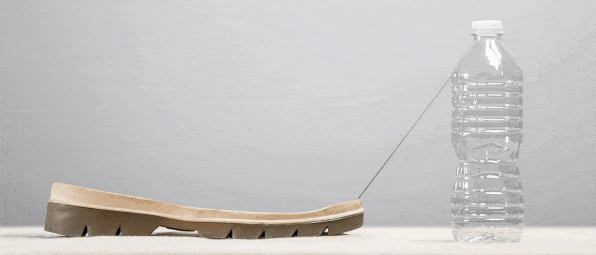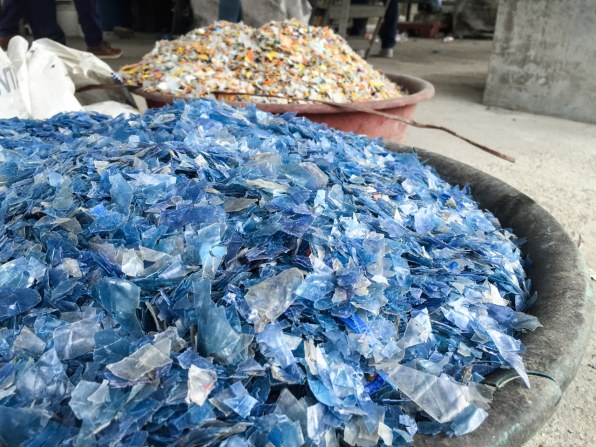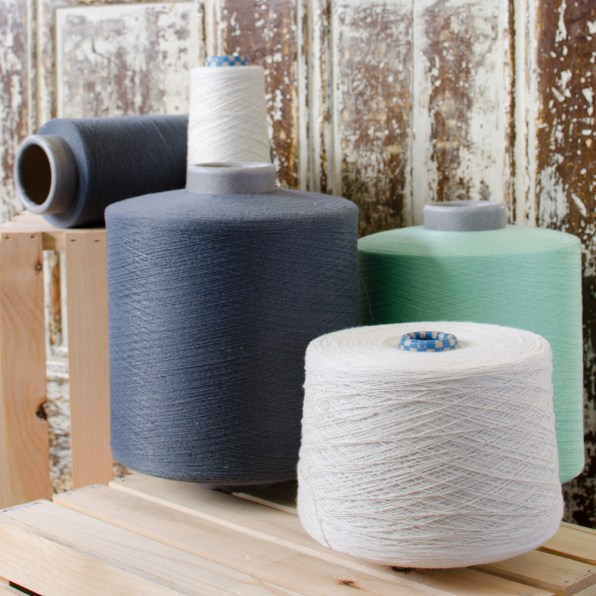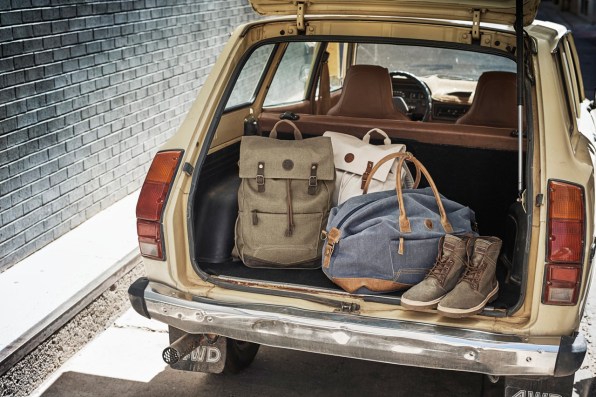The collaboration with recycling organization Thread means you could wear shoes that used to be plastic bottles.
A new backpack started life as 7.5 plastic bottles trashed on streets in Haiti.
The backpack–part of a new line of boots, bags, and t-shirts made by Timberland–looks like it’s made from canvas. But the material is 50% recycled plastic, sourced from a place that both has excess trash and a desperate need for jobs.
“It just so happens that we have this enormous resource that exists, and it just seems to be locked up in some of the toughest parts of the world,” Ian Rosenberger, CEO of Thread, the certified B Corporation that creates the fabric used in the collection.
In Haiti, for the fabric made for Timberland, more than 1,300 people collected plastic bottles, and sold them to 50 Haitian-owned and operated collection centers that Thread partners with.

The process to turn a bottle into fabric is fairly simple: the plastic is mechanically broken down into flakes, put through something that looks like a Play-Doh extruder, and then rolled and manipulated into bales that can be spun into fabric. Plastic bottles are made from oil; so is polyester. When a bottle is recycled into fabric, the end result looks the same as if it had come from fossil fuels (it can also be recycled into other products, such as printer cartridges).
“It is the same as virgin polyester,” says Rosenberger. “But because it comes from these areas, it’s actually helping people as opposed to destroying the environment. It puts us in the position where we can talk about some of the amazing things it’s providing for folks, namely jobs.”
The polyester can also be blended with cotton, as in the case of the Timberland products.

When Thread launched, it decided to work with existing brands rather than trying to launch its own, realizing that it could have more impact if it worked with the largest companies in the world to help them improve their materials.
“If you want to change the world when it comes to this stuff, you need Timberland, you need Nike, you need Gap,” he says.

The company began working in Haiti in part because it’s the poorest country in the Western Hemisphere. It spent two years studying existing recycling systems and setting up a program that would fill in the gaps, rather than competing with local business. The team now wants to repeat the process in other countries.
“I get excited about places that generally our moms get nervous about us going to,” he says. “I’m really interested in places like Syria…that’s not just because the impact is good, certainly that’s the reason we go, but it’s also a competitive differentiator. There’s a barrier to entry there, and I’m running a business.”
For the brands that buy Thread’s fabric, it costs slightly more than something made from recycled plastic would otherwise. But the startup thinks that the social impact story is worth the premium. Rosenberger sees it as the next step in what brands can do to help: instead of donating money to causes, or a buy-one-give-one model, the process of manufacturing could in itself do good.
“I see this as the next evolution in the way that clothes are made and worn,” says Rosenberger.
Source: Fast Company
Women of Green is TURNING UP THE VOLUME of the feminine voice on the planet in order to create the world we know is possible.
